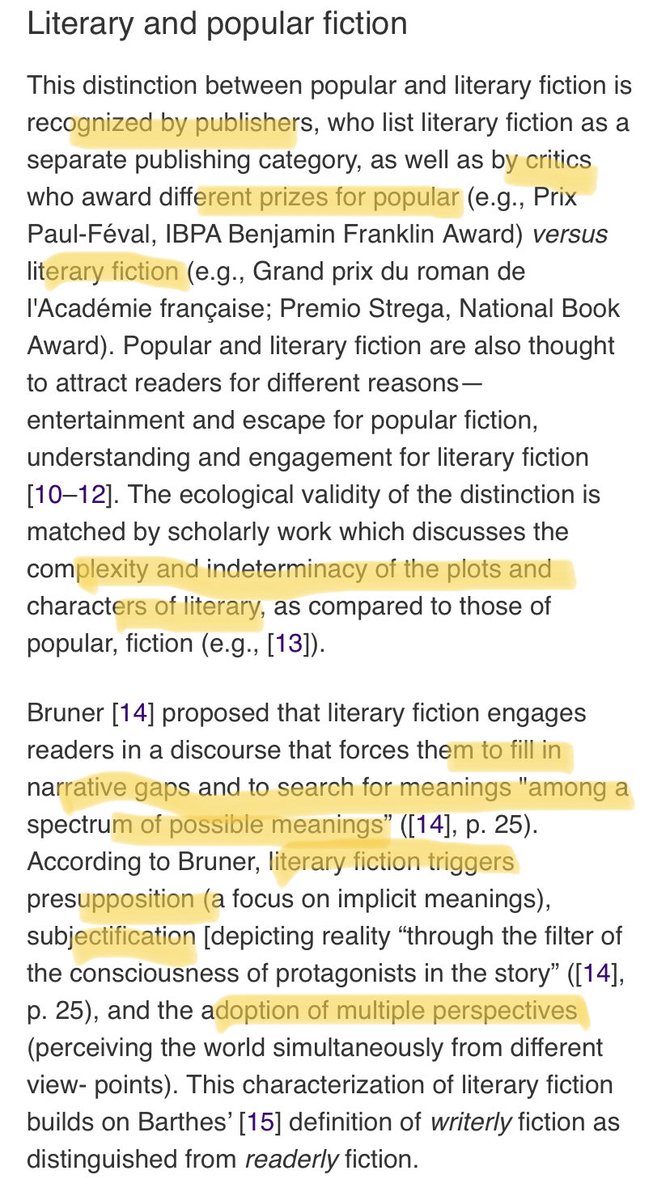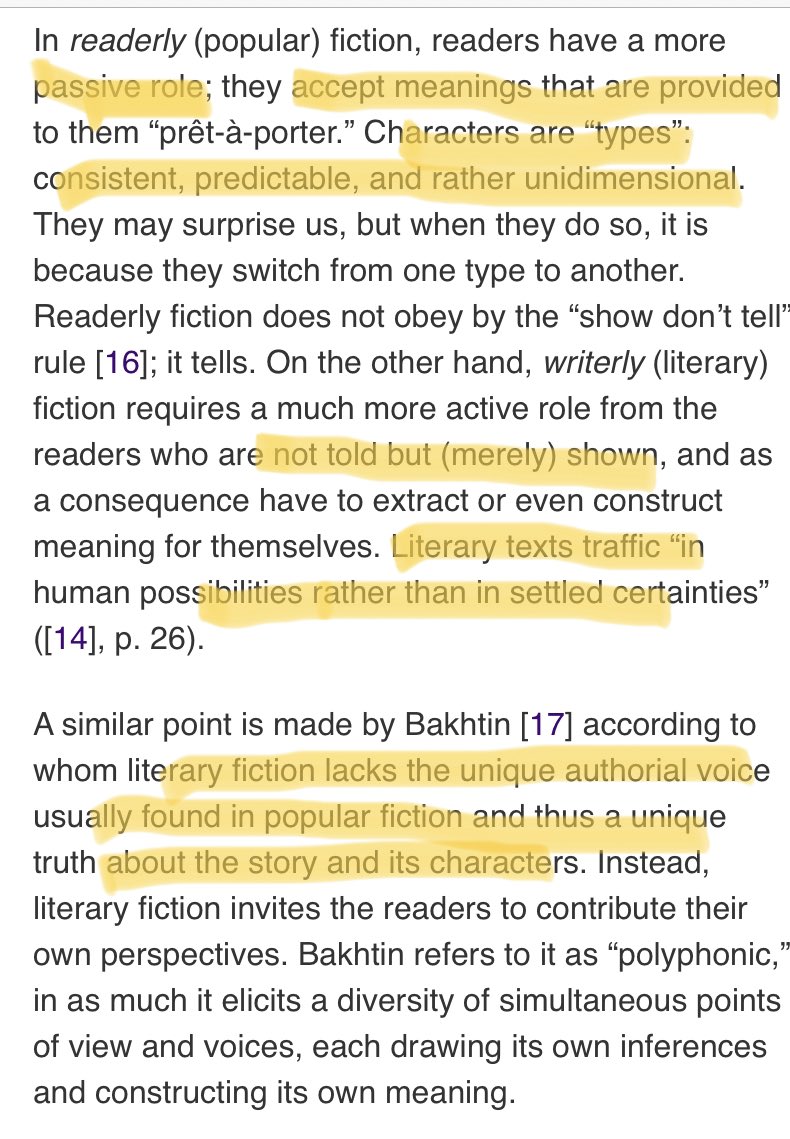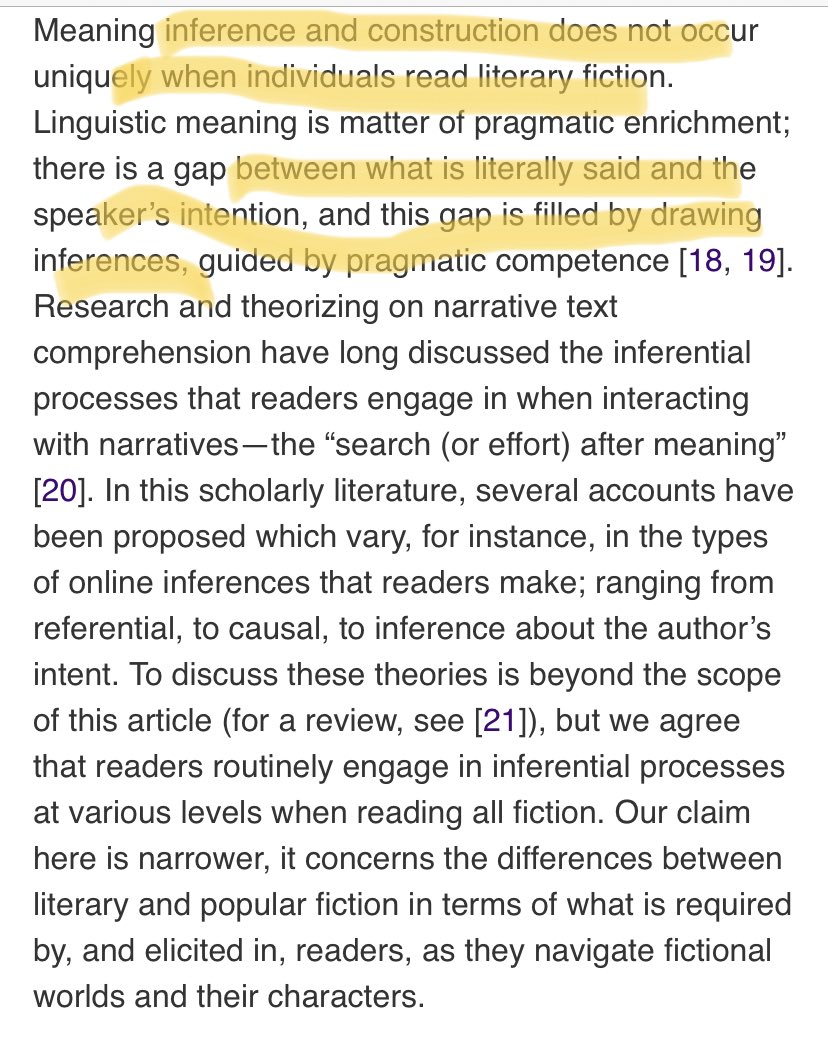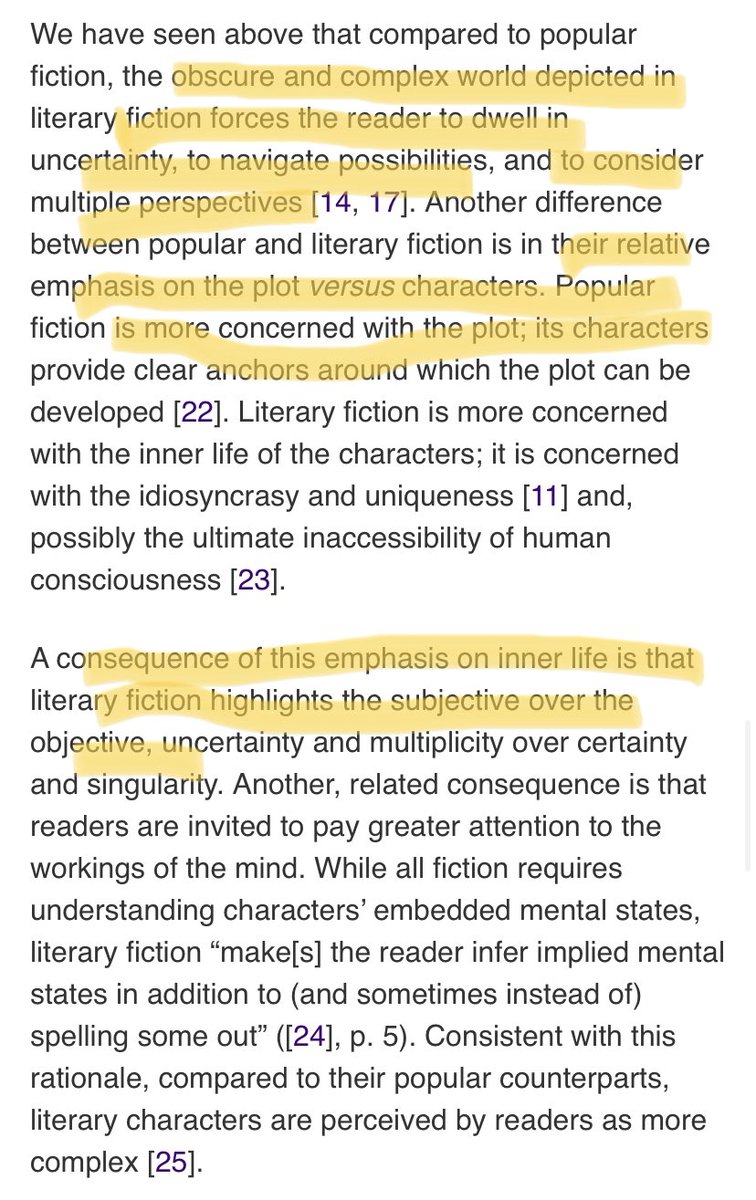
1) Thread for literature scholars and psychology researchers, both of whom will be cranky with me but for different reasons. Let’s talk about ‘Literary’ versus ‘Popular’ or ‘Genre’ fiction in this new(ish) study about their effects on readers. psypost.org/2020/10/readin…
3) Lots of interesting stuff in here, much of which literature scholars would agree with (that's part of the problem, I think, and will explain). But I'd break it down roughly this way:
4) What makes fiction 'Literary' according to the study? (a) markets / prizes; (b) characters who aren't archetypes or stereotypes; (c) avoidance of truth or objectivity in narrative; foggy worlds; (d) character (as interiority) emphasis over plot; thus (a-d) make us infer a lot.
5) If you look at the citations in the study for making these distinctions and carrying on with a study that takes 'Literary' and 'Popular' fiction as reliable constructs, it gets especially interesting for literature scholars, I'd think. ...
6) With some exceptions (e.g. cog psych lit. people such as Zunshine, which you'd expect), the bulk of the literature scholarship cited is decades old: Iser, Barthes, Bakhtin, Booth.
7) I.e. lots of narrative theory (add the psychologist J. Bruner to the mix), defining 'the literary' by theorizing narrative form, effects, etc. 'Literary' fiction in the study is meant to evade 'Genre' categories because of narrative complexities.
8) I'm really *not* interested in throwing up exceptions to these definitions to poke holes in them. That would be easy and also smallminded and ungenerous. I'd like to think about a broader phenomenon in this kind of study, the relationship btw. 'the literary' in two fields. ...
9) For literature scholars, it's worth understanding that soc. sci. groups out there crank out papers like this and they absolutely do not care about your scholarship. They're citing much older work in the field, and I have a hunch why ...
10) It's that very moment in literature scholarship--early-mid 20th c.--that crystalized the popular notion of 'literary' fiction as a complex narrative thing that makes you 'hunt for meaning and symbolism.' I'm not saying it was that simple for Booth, Iser, Bakhtin, etc., but ..
11) (Should read 'from early-mid 20th c.) that 20th c. theorizing is the most friendly to received notions of 'the literary.' Curiously, you don't find much in the psych studies on novelistic realism, I suspect bc it complicates the stock thesis on 'the literary.' ...
12) For psych researchers, you should really work with a literary historian in developing constructs like 'Literary' or 'Popular' or 'Genre' fiction. Theorizing is one thing, but I don't think you want to root such constructs in theory, at least not in the first instance. ...
13) What I mean is, you should read Ralph Cohen on genre. This will really help you get a handle on why this idea of 'genre' fiction and particularly complex 'literary' fiction is a dead-end and will always undermine your work: muse.jhu.edu/book/55869/
14) In short, I think this branch of psychology research is actually inheriting a major flaw in the study of literature. It's buying into 'the literary' as a useful category. I think 'the literary' is not a useful category. Many in my field strongly disagree. ...
15) This goes for philosophers as well, I think. Particularly phil of fiction, there's this tendency to want to separate 'the literary' as proxy for an autonomous aesthetic realm, leading to confusion in the lit. scholarship and in the philosophy. But that's for another day. /end
• • •
Missing some Tweet in this thread? You can try to
force a refresh






